
For Jewish Families, the ‘Oasis’ of Roosevelt Island Is Seeing New Developments
Roosevelt lsland—the unobtrusive strip of land that sits in the East River between Queens and Manhattan—is a place many New Yorkers might have trouble pointing out on a map.
But soon that may not be the case, as new development is in the works.
With a land surface approximately two miles long and 800 feet wide at its thickest point, the island was reopened in 1968 for residential living. It soon became referred to as “an oasis,” “the best-kept secret in New York” and, for those settling in for good, what they called “home.”
At the time, it was still referred to as Welfare Island—its name officially changed to Roosevelt Island in 1971, after former President Franklin D. Roosevelt.
In 2006, Rabbi Zalman and Nechama Duchman established Chabad of Roosevelt Island, serving approximately 350 Jewish households there.
The island, which runs parallel to East 46th Street to East 86th Street in Manhattan, filled unusual functions in history, mainly due to its geographically isolation. At one time, it served as a “no-man’s land” that housed a smallpox hospital, long-term health facilities, institutions for the mentally ill and even a prison. Within the last 40 years, the entire atmosphere and population have changed.
And although it’s easily accessible to both Manhattan and Queens by car, bridge, subway and even a tram that glides over Upper East Side avenues and the East River—ideally suited to commuters who work or study in Midtown or above—it remains virtually unknown. According to Rabbi Duchman, a Brooklyn native, “most people living on the Upper East Side of New York City who look across the river and see the island don’t even realize that people are living here.”
Ellen Levy, her husband and their two children arrived in 1970, situated there for 36 years before the Duchmans settled in. “I still remember seeing a man dressed in a black hat and long black coat standing in front of an apartment building that used to be a garden. I’m originally from Brooklyn, but had never seen anyone that religious here.
“I walked over to introduce myself, and the rabbi invited me up to his apartment for cholent. Not being observant, I thought he said, ‘Do you want to come up for chocolate?’ ” she recalls, laughing. “The Duchmans are wonderful people, and we’ve been going to events ever since.”
With approximately 14,000 residents living in 14 high-rise buildings, there is plenty of open space and the ability to enjoy outdoor activities. Levy says “the Jewish population has really grown.”
Duchman, 35, notes that in terms of being a cohesive group, “there are no subdivisions amongst us. As a community, we are a small village in the midst of a big city. We have quite a diverse array of Jewish backgrounds and all different levels of tradition. The best part of being so small is that every individual contributes a lot to the community.”
‘Like a Family’
The Honorable Judge Michel Katz and his wife, Meredith, a professor at the Jewish Theological Seminary on New York’s Upper West Side, moved to Roosevelt Island last year with their two children. “We are enjoying the ballfields, the views of the water and the suburban way of life,” says Katz. “We love the Jewish community and are happy to be a part of it. With such a small shul, our son is much more engaged.”
Nechama Duchman, 35, who was born in Michigan and raised in Montreal, is the mother of seven children, ranging in age from three months to 10 years old. “When we got here, we found a random group of Jews, everything from A to Z,” she recalls. “We met all kinds of people, mainly researchers and doctors from area medical centers. Many of them come alone, but most come with spouses and children from Israel for their post-doctorate experience. They come for varying amounts of time—anywhere from one to three years—and they become part of our community. We’re also close to the United Nations, so we have a lot of international people.”
In fact, Cornell Tech—the new applied-sciences campus of Cornell University in New York City, which is partnered with the Technion-Israel Institute of Technology in Haifa—recently announced a $50 million gift from Verizon for the development of its Roosevelt Island campus, the Verizon Executive Education Center. The center will be part of the first phase of the campus, due to open in the summer of 2017.
It will be located on the site of the former Goldwater Memorial Hospital, which opened in 1939 on city-owned land as the Welfare Hospital for Chronic Disease, later merged with another hospital, and eventually closed in 2013.
Construction is just starting. In the plans are a mix of academic buildings and green space, including a pedestrian “Tech Walk” open to the public.
Its presence should add some bustle to the area and continue to bring in an academic crowd. In fact, the rabbi says they are already working with those involved, pointing out that they are “campus shluchim before the campus even arrives.”
Assaf Bardach and his wife, Dr. Rachel Schor Bardach, and their five children relocated to Roosevelt Island last summer from Har Gilo, an Israeli village between Jerusalem and Gush Etzion, “looking to be close to Sloan Kettering, where my wife has a one-year fellowship in the department of radiology,” explains Bardach. “Being in [Manhattan] was too intense; here, our neighborhood is open and doesn’t have a lot of traffic. It’s more like what we left in Israel.”
Moreover, says the Torah-observant Bardach, “the community we have here at Chabad is like a family for us. We participate in all the activities. I can’t say one is better than the rest. I can tell you that Sukkot was amazing.”
There is a great advantage to being in such a small community, says Rabbi Duchman, “because every time a new family comes, there is excitement about getting to know each other.”
‘Sense of Permanence’
With the addition of new buildings, and the renovation and availability of new space in which to house residents and hold programming, Chabad of Roosevelt Island is growing in some interesting ways. “In the past three or four months alone, we’ve met three new families. While many families come and go,” according to Nechama Duchman, “others come and stay.”
“Until now, we’ve rented the party room in our apartment building for community meals around yuntif [Jewish holidays], and hold the monthly Rosh Chodeshgroup for women in our apartment,” she says.
One new and exciting sign of progress are the weekly Shabbat-morning services that began three months ago in the space the Duchmans rent in a nearby and newly renovated cultural center, where, according to the rabbi, “it has given us the greatest sense of permanence.” They now hold their weekly services and a Kiddish luncheon there on Saturday mornings as well.
Although they’ve offered a Hebrew school on Sundays for the past six years, for a more complete Jewish education, the rabbi encourages families to send their children off the island to nearby well-established Jewish day schools that fit their needs.
Chabad of Roosevelt Island has achieved great success with the “mini-chefs” program held in the Duchman kitchen, uniting children ages 6 to 9 who typically would not be in a classroom setting together, but who benefit from experiencing this type of program. “Yiddishkeit should be experienced at home,” stresses the rabbi. “There’s a lot to learn about Jewish life in a kitchen—not justkashrut and blessings, but the way faith and food connect, and all come from G-d.”
A “mini-chefs” graduation and Friday-night dinner is in the works for June 12, with the Shabbat dinner being prepared by the young participants themselves.
Other year-round programming, specifically for the holidays, can reach upwards of 100 people.
“Our most well-attended celebrations each year are Lag BaOmer andChanukah,” note the Duchmans. “Another joyous part of our year centers around our communal Passover seders, which offer a very unique local flavor.”
It’s the flavor of a still fairly secluded spot in New York that has an essence all its own.

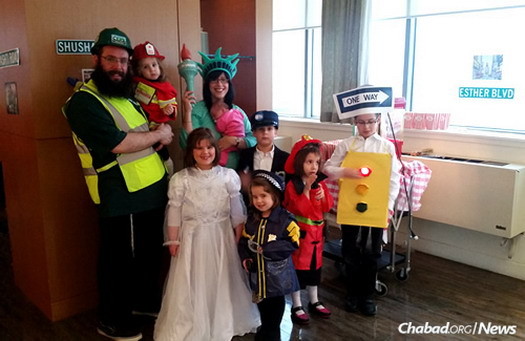
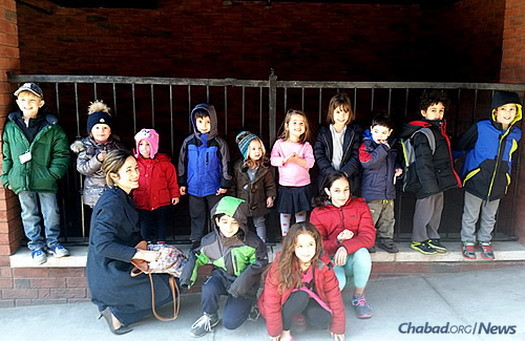
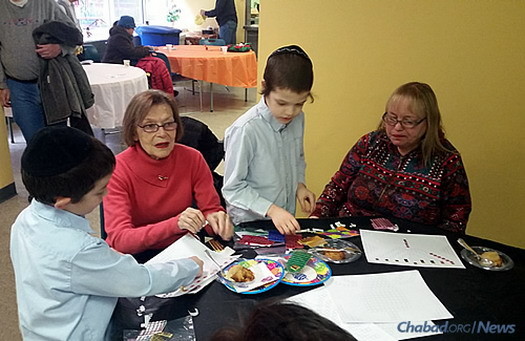
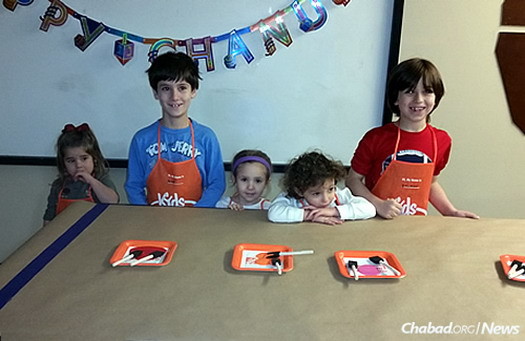
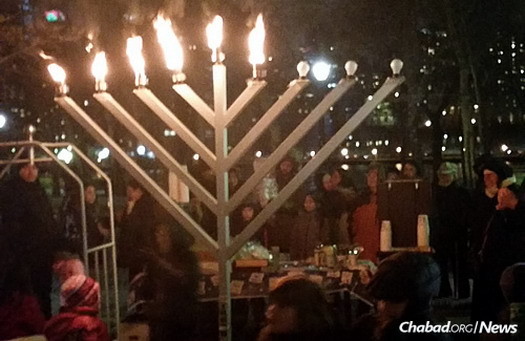
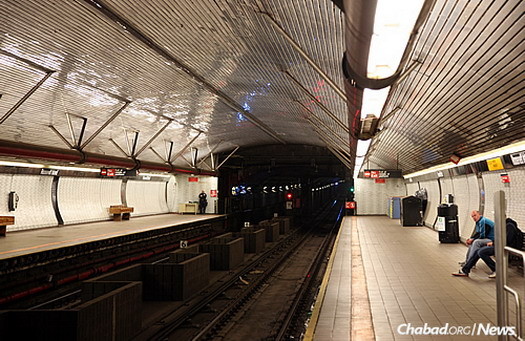














chronic hospital
I used to visit my uncle there in the late 1950s and early 1960s. The whole island was ” institutional.